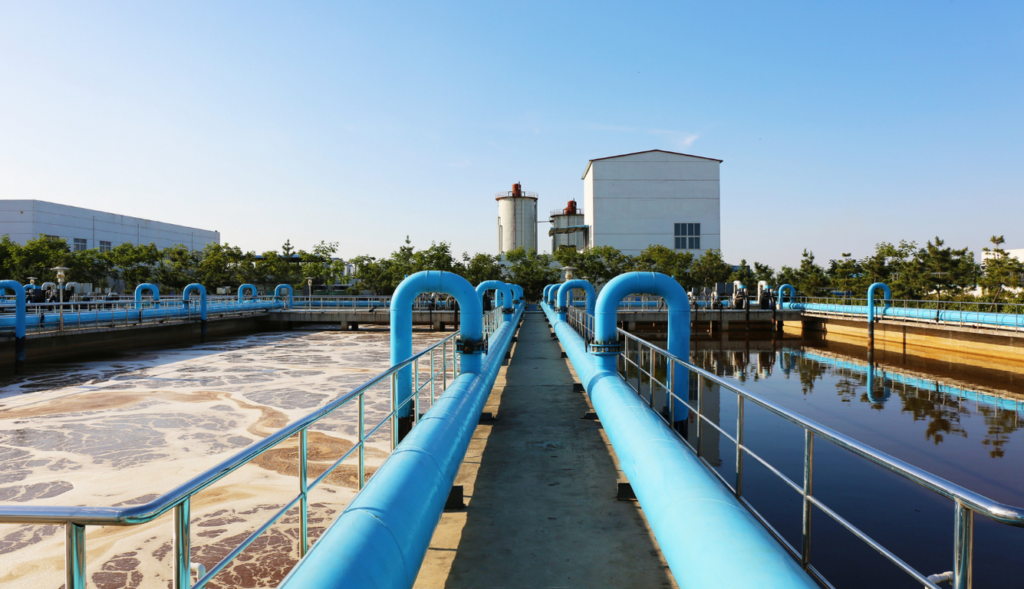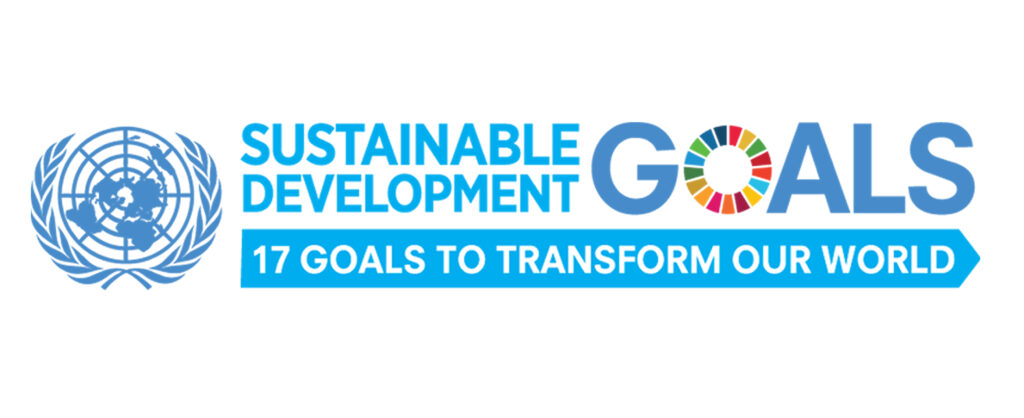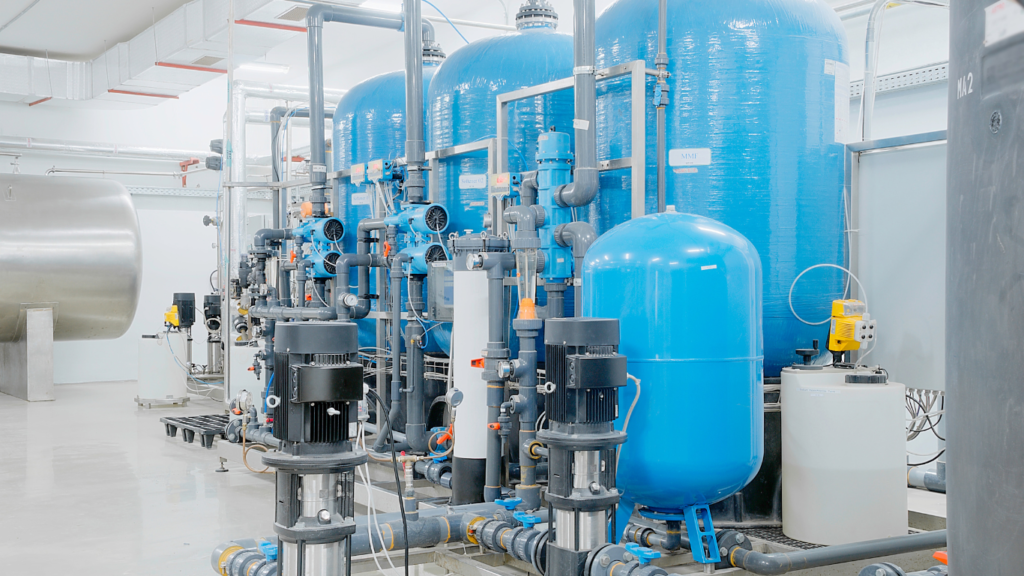Water treatment plants are essential for ensuring access to clean and safe drinking water. With the growing demand for water resources and the increasing concern for water quality, the future of water treatment plants is expected to see several innovations and advancements. Scaleban Equipment Pvt. Ltd. provides a unique and eco-friendly technology that facilitates worldwide water conservation. Here are some of the most promising developments in the field of water treatment systems.

Advanced Treatment Technologies:
Advanced treatment technologies such as membrane filtration, reverse osmosis, and ultraviolet (UV) disinfection are being used more frequently in water treatment plants. These technologies can remove more contaminants and pathogens from water than traditional treatment methods. Membrane filtration systems use semi-permeable membranes to remove particles, microorganisms, and dissolved solids from water. Reverse osmosis systems use high pressure to force water through a membrane, removing impurities. UV disinfection is a chemical-free process that uses ultraviolet light to kill bacteria, viruses, and other microorganisms in water. While advanced water treatment technologies have made significant advancements in recent years, there are still some drawbacks to consider like High energy requirements, Expensive capital costs, Limited effectiveness against certain contaminants, Complex operations, and maintenance, etc. But ScaleBan’s technologies have covered all the drawbacks by a big margin.
Smart Water Management:
Smart water management involves the use of advanced sensors, data analytics, and artificial intelligence to optimize water treatment plants. These technologies can help water treatment plants to monitor water quality in real time and make adjustments to the treatment process accordingly. For example, sensors can detect changes in water quality and automatically adjust the treatment process to ensure that the water meets regulatory standards.
Decentralized Water Treatment:
Decentralized water treatment plants are smaller, modular systems that can treat water at the source, such as in individual homes or buildings. These systems can be more cost-effective and efficient than large centralized water treatment plants. Decentralized water treatment can also reduce the risk of contamination during distribution. Decentralized water treatment systems have several potential drawbacks, including; Limited Capacity, High Initial Cost, Maintenance Requirements, Environmental Concerns & Inconsistent Water Quality. Scaleban serves as one of the best alternatives to Decentralized Water Treatment as our ZLD ( Zero Liquid Discharge) process guarantees the best output in an economical manner.

Green Technologies:
Green technologies use sustainable and environmentally friendly processes to treat water. For example, constructed wetlands are a natural form of wastewater treatment that use plants and microbes to remove pollutants from water. Other green technologies include using solar energy to power water treatment processes and using recycled materials in water treatment plants.
Water Reuse:
Water reuse involves treating wastewater to a standard that can be reused for non-potable purposes such as irrigation, industrial processes, and toilet flushing. Water reuse can help to conserve water resources and reduce the demand for potable water. It also provides a reliable source of water for non-potable uses.
Desalination:
Desalination is the process of removing salt and other minerals from seawater or brackish water to produce potable water. Desalination can provide a reliable source of water in areas where freshwater resources are limited. Advances in desalination technology, such as forward osmosis and membrane distillation, are making desalination more efficient and cost-effective.

Electrochemical Treatment:
Electrochemical treatment is a promising technology that uses an electric current to remove contaminants from water. It can remove a wide range of contaminants, including heavy metals and organic compounds. Electrochemical treatment can be used in combination with other treatment methods, such as membrane filtration, to achieve even greater levels of water purity.
Role of ZLD:
Zero Liquid Discharge solution in India is a process that aims to eliminate liquid waste streams from industrial and municipal processes. The specialty of ZLD is that it can effectively treat wastewater to recover all the water for reuse, leaving behind only solid waste or brine. This process is particularly useful in water-scarce regions where freshwater resources are limited, and strict environmental regulations are in place. Another specialty of ZLD is that it can help industries and municipalities meet strict wastewater discharge regulations while also reducing the demand for freshwater resources. ZLD is also an environmentally friendly process as it reduces the amount of wastewater that needs to be discharged into the environment.

As per the United Nations Millennium Development Goal 7, the aim was to reduce by half the proportion of people lacking sustainable access to safe drinking water and basic sanitation by 2015. Numerically, this meant that 88.5% of the world’s population should have accessible drinking water by 2015. While we have made sustained efforts toward achieving this goal, progress has not been uniform across the globe. The target for improving sanitation is even further from attainment. The advantages of better wastewater management outweigh the costs significantly. Enhancing the recycling and secure reuse of wastewater can bring positive impacts on water quality and supply, leading to advancements in public health, environmental sustainability, and economic development. It can also create new business opportunities and generate more eco-friendly jobs.
Wastewater is a valuable resource for farmers, providing both water and nutrients for crops. This can enhance water and food security, as well as improve livelihoods. Better wastewater management can also decrease the risk of pathogen exposure, resulting in improved health for agricultural workers. Furthermore, ‘industrial symbiosis’ can be achieved through the use of wastewater. As a major water consumer and wastewater discharger, the industry can recycle some of its ‘process water’ for cooling or heating purposes and use rainwater for activities such as toilet flushing, irrigation, or vehicle washing.
Scaleban Equipment Pvt. Ltd. offers a one-of-a-kind, innovative, and eco-friendly technology that enables global water conservation and achieves ZERO LIQUID DISCHARGE (ZLD) goals without the use of wastewater RO and Evaporator (MEE). These traditional methods consume significant amounts of power and steam, leading to high CO2 emissions which are a major global concern.
In conclusion, the future of water treatment plants is promising, with advancements in technology and a growing awareness of the need for sustainable water management practices. The development of advanced treatment technologies, smart water management, decentralized water treatment, green technologies, water reuse, desalination, and electrochemical treatment is expected to play a significant role in improving the efficiency and effectiveness of water treatment systems. These innovations will help to ensure access to clean and safe drinking water for future generations.
